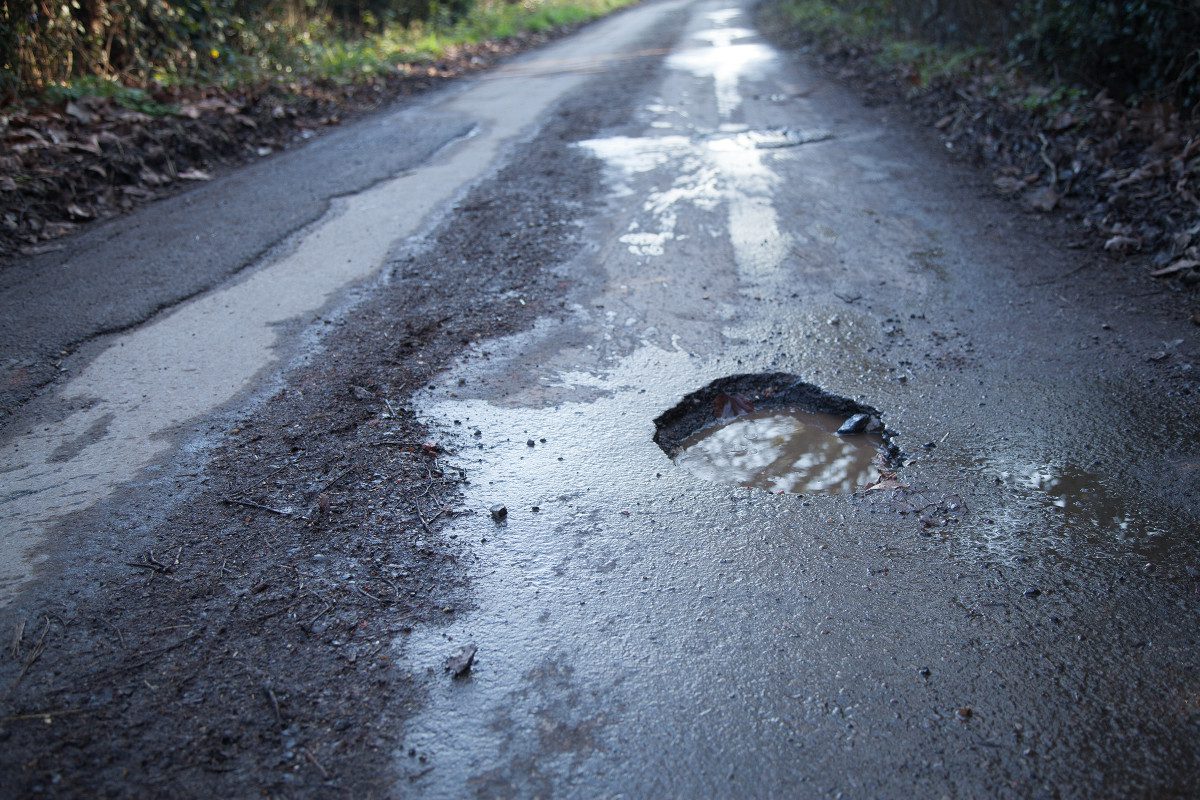
The method could help prevent potholes caused by freezing and thawing in the winter, according to researchers at the University of Surrey
A project that will test the new approach has been awarded a £625,000 research fellowship from the Royal Academy of Engineering. The outcomes could improve how major roads across the United Kingdom are maintained and upgraded, even as climate change increases the challenge of keeping them fit for purpose.
Surrey’s Dr Benyi Cao, the project lead, will work with National Highways to trial the use of geothermal energy to keep road surfaces at a controlled temperature. They will introduce ground source heat pumps to cool roads in summer and warm them in winter.
Dr Cao, a lecturer in the School of Sustainability, Civil and Environmental Engineering at the University of Surrey, said: “At the moment, a typical motorway or A-road surface lasts 20 years, but this is likely to reduce as extreme weather increases. However, by regulating the temperature of road surfaces, they should last significantly longer. Aside from the safety benefits and reduction to car damage, think of the reduction in expensive, inconvenient roadworks.”
Current road technology creates an estimated 700,000 tonnes of carbon emissions each year, and the cost of repairing pothole-plagued UK roads is expected to be £12 billion over the next decade. Thermo-active roads could provide a low-cost, low-carbon alternative to reduce road damage.
Potholes on England’s major roads have caused 5,000 injuries since 2018. Last year, England spent £1.2 billion on road maintenance and repair, a process with a high carbon footprint.
Dr Cao said: “Climate change poses an extra threat to our roads. Thermo-active roads could help mitigate this. They could be introduced gradually as resurfacing takes place, so wouldn’t cause any extra disruption for motorists. I think there will be long-term benefits to drivers and taxpayers. That’s what I aim to demonstrate during my fellowship.”
During his five-year research fellowship, Dr Cao is setting out to:
- Work with advanced materials engineering company Versarien to develop a new graphene-enhanced microcapsule to dig into the soil beneath the surface when roads are resurfaced to improve heat conduction and storage;
- Create a laboratory scale model road segment with a heat pump in the University of Surrey’s Advanced Geotechnical Laboratory to evaluate the thermal performance and resilience of roads under controlled climatic and traffic loads;
- Complete advanced numerical modelling, which incorporates meteorological data and findings from the lab model experiments to help engineers understand how best to build thermo-active roads; and
- Introduce full-scale field trials on UK roads and conduct a full life cycle assessment to understand the environmental as well as financial costs of thermo-active roads.
The study will support National Highways’ net zero plan, which aims to make road maintenance net-zero by 2040.







